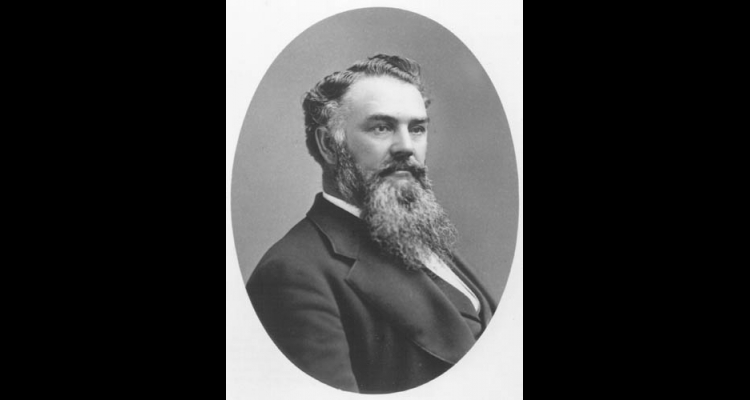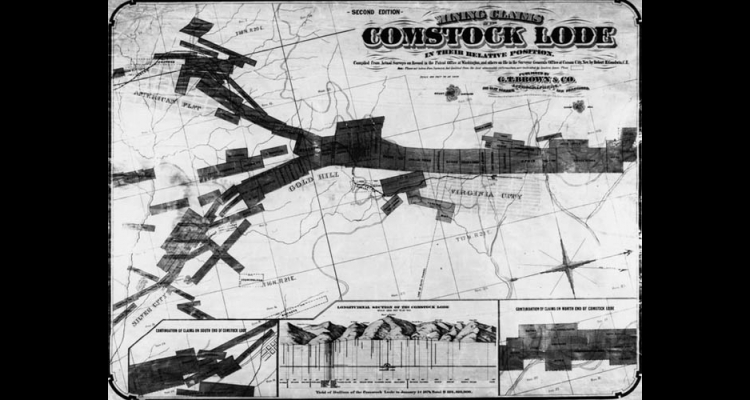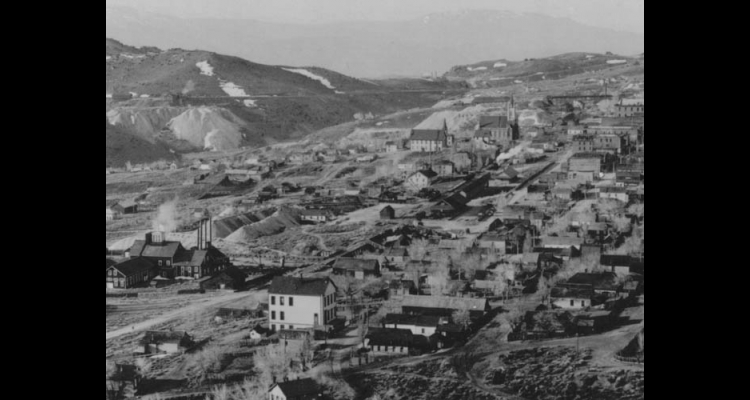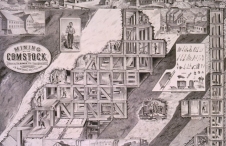James Graham Fair
James Fair is credited with discovering the Big Bonanza, one of the richest pockets of gold and silver on the Comstock Lode. He used his wealth to secure a seat in the U.S. Senate. Born in Northern Ireland in 1831 to Scots-Irish parents, Fair immigrated with his family to the United States when he was a boy. Following the 1849 Gold Rush, he traveled to California. Fair earned a reputation for understanding ore bodies, inspiring his eventual employment as superintendent of various mines.
The 1859 discovery of the Comstock Lode provided Fair with new opportunities. In 1865, he became superintendent of the prestigious Ophir Mine. Two years later, the Hale and Norcross Mine hired him as assistant superintendent, but the owners dismissed Fair within a year for unclear reasons.
While at the Hale and Norcross, Fair met John Mackay, whose success at the Kentuck Mine made him a millionaire. The two Irish immigrants recognized common interests and formed an alliance. Mackay gave Fair the position of superintendent of the Rising Star Mine in Idaho, a property he had recently acquired. The venture proved unsuccessful, but it solidified a working relationship between the two.
Fair worked quietly with Mackay and investors James Flood and William O'Brien to obtain control of the Hale and Norcross. Fair turned it to profit with better management. Fair and Mackay combined their expertise to acquire and explore other claims. In 1873, largely through Fair's persistent search in the Consolidated California and Virginia Mine, the partnership discovered the famed Big Bonanza, one of the richest ore bodies in history. Fair and the others became extremely wealthy. Fair used his assets to defeat the incumbent William Sharon for a seat in the United States Senate, which he held in an undistinguished way from 1881-1887 as a Democrat.
Fair developed real estate in San Francisco and acquired mining property outside Nevada. Theresa Fair, his wife, was respected in Virginia City for donations to causes including those of the Catholic Church and the Daughters of Charity. When she divorced her husband in 1883 for habitual adultery, national public opinion turned against the senator. During his bid for reelection, he found little support. Even Mackay failed to come to his aid, and he easily lost his seat to William Stewart.
Many Comstockers watched to see how sudden wealth affected people. Sandy and Eilley Bowers, John Mackay, and others played roles in local folklore that examined the possible reactions to becoming rich. For many, "Slippery Jim" Fair demonstrated that wealth could ruin character, making him mean spirited and vindictive. This contrasted with the positive perception of Mackay, a duality reversed for the spouses: while many regarded Marie Louise Mackay as too aloof to remain with her hard working husband in Virginia City, Theresa Fair won sympathy.
A commonly told story about Fair describes him finding some miners taking a break. Fair asked them for tobacco and lit his pipe, violating the strict prohibition against smoking underground. The laborers followed their supervisor's example. At shift's end, they found notes of dismissal for breaking the rules. Unflattering anecdotes such as these entered the local folklore, casting Fair in the role of villain.
James Fair died in 1894 in San Francisco.
Article Locations
Related Articles
Further Reading
None at this time.





